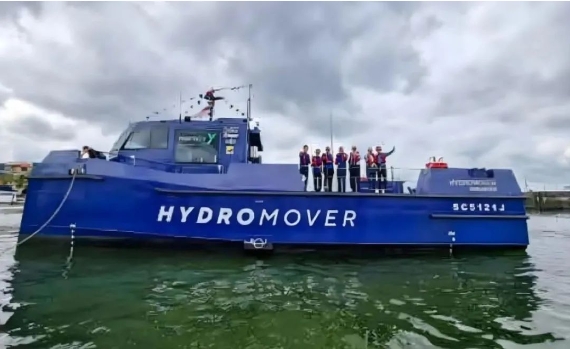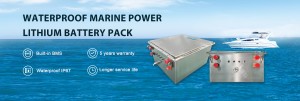Do Lithium Boat Batteries Require a Special Charger?
Do Lithium Boat Batteries Require a Special Charger?
As the marine industry continues its shift towards greener and more efficient energy solutions, lithium-ion batteries are becoming a dominant power source for electric and hybrid boats. With their high energy density, long cycle life, and environmental benefits, lithium boat batteries, particularly lithium iron phosphate (LiFePO4) batteries, are gaining popularity. However, a common question among boat owners and enthusiasts is whether these batteries require a special charger. In this blog, we will explore this question in depth, while also providing insights into the latest data on marine battery technology in 2024.
Types of Lithium Boat Batteries
Before addressing the charger issue, it’s important to differentiate between the different types of lithium boat batteries. The most commonly used types include:
LiFePO4 (Lithium Iron Phosphate): Known for their stability and long cycle life, these batteries are widely used in electric boats and hybrid propulsion systems. They are particularly valued for their safety features and resistance to overheating.
Ternary Lithium Batteries (NCM): These batteries have a higher energy density than LiFePO4, but they come with greater safety concerns, especially in high-temperature environments. As a result, they require more advanced battery management systems (BMS).
Lithium Manganese Oxide (LMO) and Lithium Titanate (LTO): While less common in marine applications, these batteries offer specific advantages, such as higher charging rates or longer life cycles, though they are generally more expensive.
2024 Data on Marine Lithium Batteries
According to the latest data from the marine industry in 2024, the global market for lithium batteries for boat motors is expected to grow at a compound annual growth rate (CAGR) of 12% from 2023 to 2028. This growth is driven by the increasing adoption of lifepo4 batteries for electric boats, which are favored for their safety and performance in harsh marine environments. A key factor contributing to this trend is the rising demand for battery packs that meet IP65 waterproofing standards, ensuring that they can withstand the challenges of saltwater and extreme weather.
Do Lithium Boat Batteries Need a Special Charger?
The short answer is yes, lithium batteries for boat electric motors, particularly LiFePO4 batteries, require a charger specifically designed for lithium chemistry. Here’s why:
1. Voltage Specificity
Lithium boat batteries have different voltage requirements compared to traditional lead-acid batteries. For example, a typical 12V lead-acid battery operates between 11.8V and 14.4V, while a 12V LiFePO4 battery operates between 13.2V and 14.6V. A standard lead-acid charger may not fully charge a lithium battery, or worse, could overcharge it, leading to damage.
2. Charging Profile
Lithium batteries require a constant current/constant voltage (CC/CV) charging profile, which differs from the bulk, absorption, and float stages used to charge lead-acid batteries. Lithium chargers are designed to provide the optimal charging curve, ensuring the battery is charged efficiently and safely.
3. Overcharge Protection
Most lithium boat batteries come with an internal Battery Management System (BMS) that protects against overcharging, undervoltage, and overheating. However, using an appropriate lithium charger ensures that the charging process is tailored to the battery’s needs, reducing the risk of triggering the BMS and prolonging battery life.
4. Faster Charging
Lithium batteries can handle higher charge rates than lead-acid batteries without damage. A lithium battery for an electric boat can often be charged up to 80% of its capacity in just an hour with the right charger. Using a standard lead-acid charger could slow down the charging process significantly, reducing the efficiency of your marine system.
Benefits of Using Lithium-Specific Chargers
1. Enhanced Battery Life
Using a charger designed for lithium chemistry helps maximize the lifespan of the battery. Lithium batteries are an investment, and choosing the right charger ensures that you get the most out of that investment, both in terms of performance and longevity.
2. Safety Considerations
Lithium chargers are equipped with safety features such as overheat protection and automatic shut-off when the battery reaches full charge. This is particularly important for lithium batteries for boat motors, as the marine environment presents additional safety challenges, including exposure to high temperatures and moisture.
3. Efficiency
Lithium-specific chargers are optimized for fast and efficient charging, reducing downtime for electric boats and hybrid vessels. For commercial operations like ferries, tour boats, and workboats, this translates into more time on the water and less time waiting for batteries to recharge.
Conclusion: Why Special Chargers Matter
In 2024, the marine industry is rapidly evolving with a strong focus on sustainability and efficiency. Lithium batteries for boat electric motors—especially the popular LiFePO4 battery for electric boats—offer a perfect solution for reducing emissions, cutting operational costs, and improving performance. However, to fully leverage these advantages, it is essential to use the right charger. A lithium-specific charger ensures that your batteries are charged safely, quickly, and efficiently, maximizing their lifespan and performance.
By investing in a proper charging solution, boat owners can ensure that their battery pack lifepo4 boat IP65 remains in optimal condition, delivering reliable power for years to come.
For more industry and product information, please contact us:
WhatsAPP/Tel: +86-18100835727
Email: support@voltupbattery.com
Post time: Sep-24-2024









